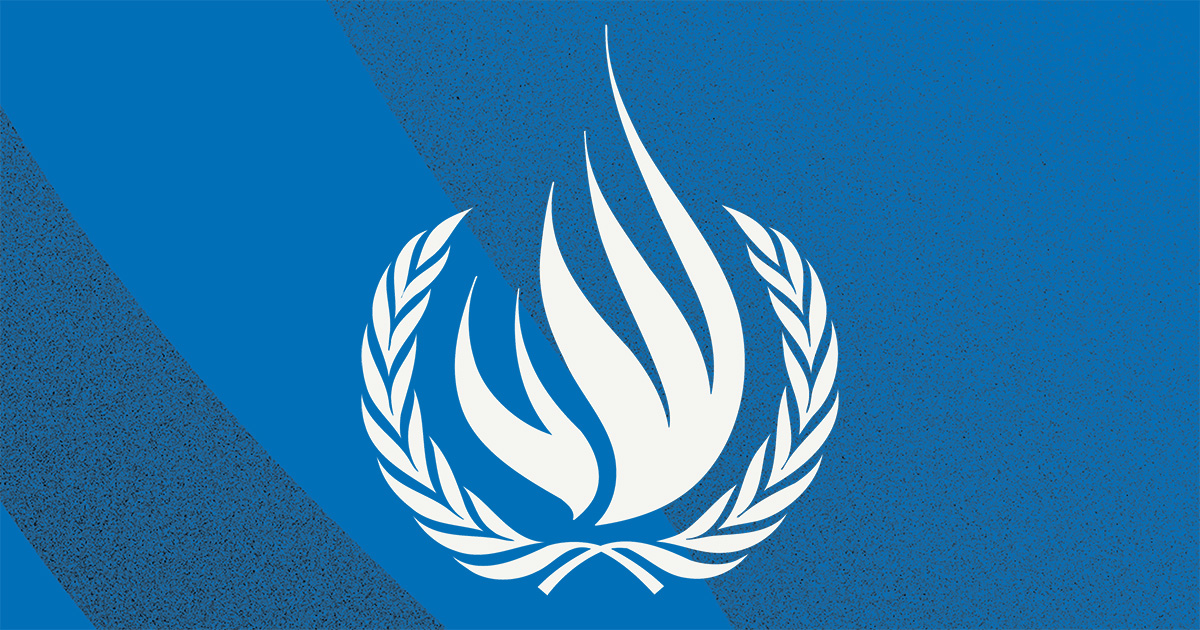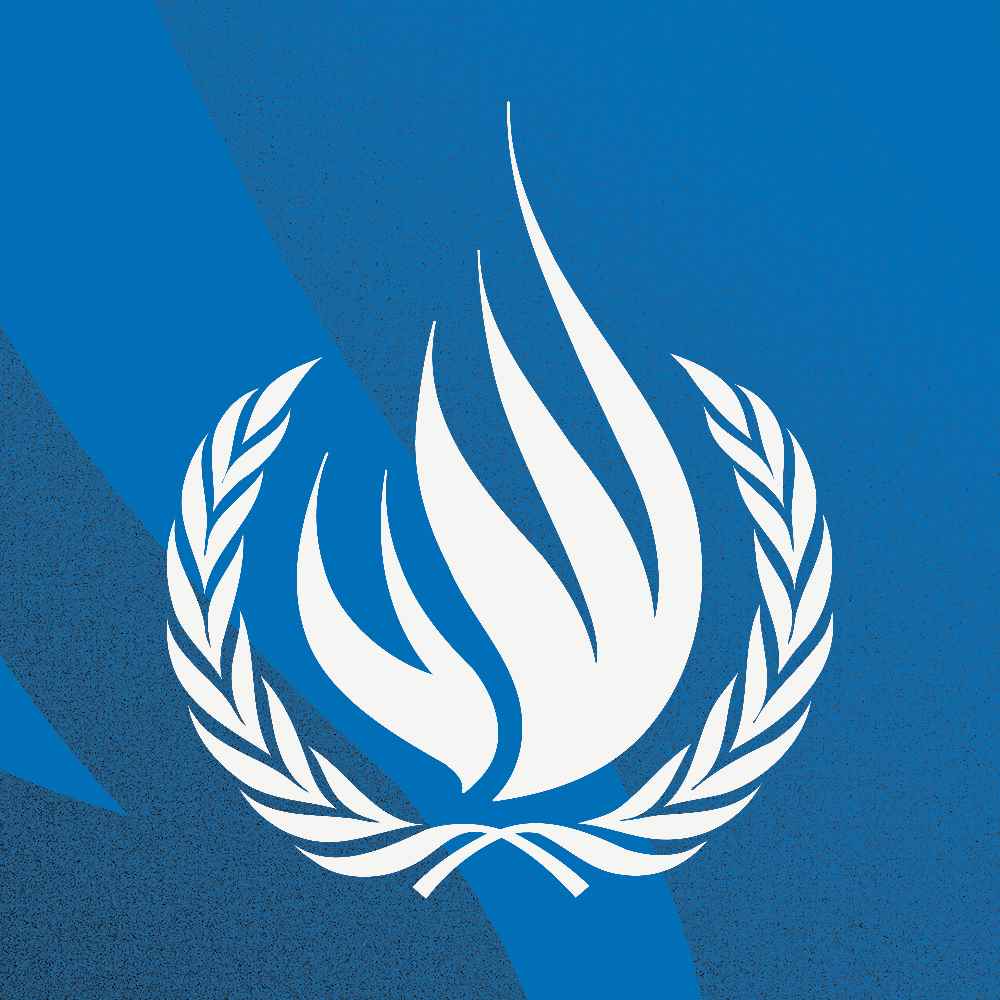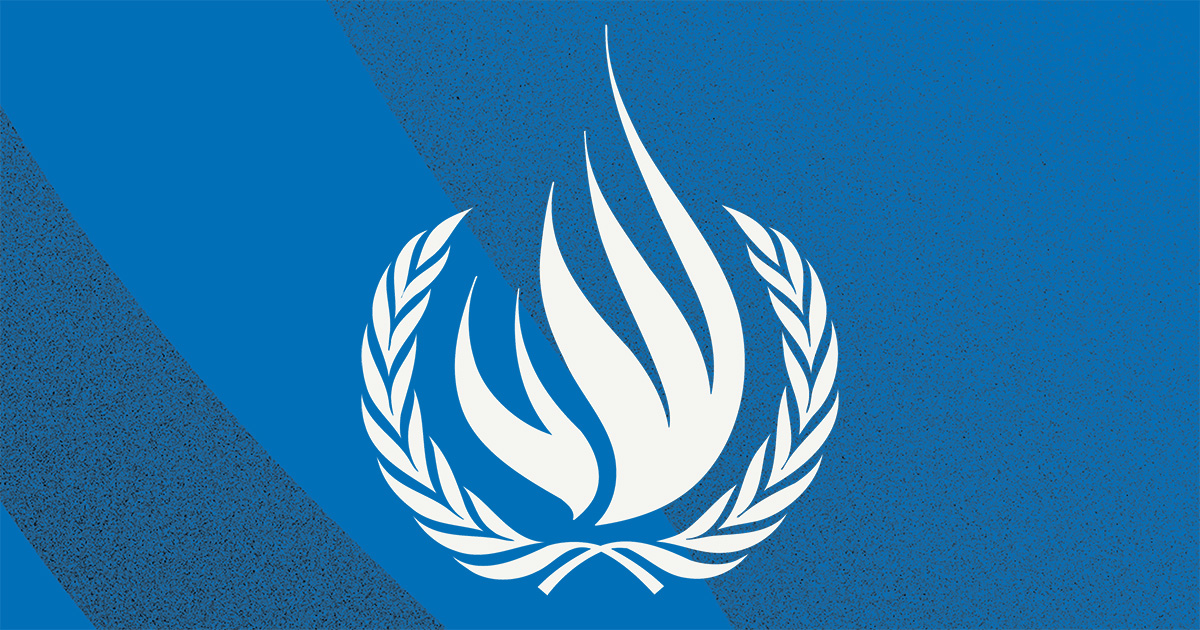
The Committee on the Rights of Persons with Disabilities today opened its thirty-first session, during which it will review the reports of Belarus, Belgium, Benin, Burkina Faso, Denmark, Ghana, Mauritius, Netherlands and Ukraine.
Andrea Ori, Chief, Groups in Focus Section, Human Rights Treaties Branch, Human Rights Council and Treaty Mechanisms Division, Office of the High Commissioner for Human Rights, and Representative of the Secretary-General, opening the session, said the 2024 report on disability and development showed that persons with disabilities were being left behind. Progress for persons with disabilities on only 30 per cent of Sustainable Development Goal targets was insufficient, and merely five indicators were on track. Wide gaps persisted between persons with and without disabilities, particularly in relation to food insecurity, health, access to energy and technology, multidimensional poverty and employment.
Mr. Ori said acceleration was particularly needed in making physical and virtual environments accessible for persons with disabilities, adopting anti-discrimination legislation, expanding social protection, and implementing measures to guarantee the safety and protection of all persons with disabilities during disasters and emergencies.
He concluded by wishing the Committee a fruitful and productive session and expressing his full support for its work.
In the meeting, the Committee paid tribute to Sir Robert Martin, Committee Expert from New Zealand who passed away on 30 April 2024 during his mandate. Lucy Duncan, Permanent Representative of New Zealand to the United Nations Office at Geneva, and Committee Expert Amalia Gamio made statements reflecting on his life and legacy, recalling that he was the first person with an intellectual disability to be elected as a member of the Committee, and a key contributor to the Committee’s guidelines on deinstitutionalisation, including in emergencies. Gertrude Fefoame, Committee Chairperson, said that his contributions to the Committee would not be forgotten.
Ms. Fefoame, in her opening remarks, said that with 191 ratifications, the Convention had reached almost universal ratification, testifying to the international commitment to the inclusion of persons with disabilities. She welcomed the work undertaken by the Office of the High Commissioner to support the Committee. She regretted, however, that the Committee had lost some opportunities to work due to the United Nations’ liquidity crisis, including its second pre-sessional working group. The Committee’s backlog remained significant, with 66 reports pending to be considered by the Committee. Ms. Fefoame concluded by providing an overview of her activities undertaken since the last session.
The Committee then heard statements by United Nations bodies, and State and civil society representatives. Speaking was the Permanent Representative of Honduras as well as representatives of the United Nations High Commissioner for Refugees; International Disability Alliance; Centre for the Human Rights of Users and Survivors of Psychiatry; Comunidad Mexicana de Hipoacúsicos; Centro Morpho Costa Rica; Poder Judicial, Argentina; and Privacy International.
During the meeting, the Committee also adopted the programme of work for the session.
The Committee’s thirty-first session will be held from 12 August until Thursday, 5 September 2024. Summaries of the public meetings of the Committee can be found here, while webcasts of the public meetings can be found here. The programme of work of the Committee’s thirty-first session and other documents related to the session can be found here.
The Committee will next meet in public this afternoon, Monday 12 August at 3 p.m. to consider the initial report of Burkina Faso (CRPD/C/BFA/1).
Opening Statement
ANDREA ORI, Chief, Groups in Focus Section, Human Rights Treaties Branch, Human Rights Council and Treaty Mechanisms Division, Office of the High Commissioner for Human Rights, and Representative of the Secretary-General, paid tribute to the life and legacy of Sir Robert Martin, the first person with an intellectual disability to be elected as a member of the Committee, who passed away on 30 April 2024, while serving in office. The United Nations would always remember his tireless struggle to promote independent living, and the independence and inclusion of people with disabilities in the community.
Mr. Ori congratulated the members of the Committee who were re-elected at the seventeenth meeting of the Conference of the States parties to the Convention on the Rights of Persons with Disabilities, held in June 2024 in New York, wishing them every success in their work on the Committee.
In June 2024, the United Nations released the 2024 report on disability and development. The report showed that persons with disabilities were being left behind. Progress for persons with disabilities on only 30 per cent of Sustainable Development Goal targets was insufficient; 14 per cent of the targets had been missed or progress had stalled or gone into reverse. These included targets on access to financial resources, health care, water and information technology as well as on building resilience of persons with disabilities during disasters and other emergencies. Merely five indicators were on track: indicators on education, laws on equal access, disaster early warning in accessible formats, online services for persons with disabilities, government ministries accessible for persons with disabilities, and bilateral aid dedicated to disability inclusion. Wide gaps persisted between persons with and without disabilities, but for women with disabilities, indigenous persons with disabilities, persons with intellectual or psychosocial disabilities, and persons with disabilities living in rural areas, the gaps were even wider. Moreover, although countries had increasingly involved persons with disabilities in decision-making processes, overall, their involvement remained low.
At the current rate, the world would not achieve the Sustainable Development Goals by, for and with persons with disabilities by 2030. Depending on the target, progress needed to accelerate between 2 and 65 times faster. Acceleration was particularly needed in making physical and virtual environments accessible for persons with disabilities, adopting anti-discrimination legislation, expanding social protection, and implementing measures to guarantee the safety and protection of all persons with disabilities during disasters and emergencies.
As the international community prepared for the Summit of the Future in September 2024, collective action was needed to accelerate the Sustainable Development Goals, and disability inclusion was part of the solution. The latest version of the text of the Pact of the Future, dated 17 July 2024, recognised disability inclusion in key areas, such as the protection of civilians in armed conflicts, the promotion of social inclusion of youth with disabilities, and opportunities provided by new and emerging technologies to empower and advance equity for persons with disabilities. Similarly, the most recent version of the Declaration on Future Generations emphasised that the full and equal participation of persons with disabilities in society and all decision-making processes was critical to ensuring that no one was left behind. Likewise, the latest version of the Global Digital Compact of June 2024 was anchored in the principles of inclusion, human rights, gender equality, and equitable and accessible digital technologies and services.
Regarding support and care systems, Mr. Ori presented two Human Rights Council resolutions: 54/6 of September 2023 and 55/8 of 3 April 2024. The first promoted support and care systems, comprising disability-inclusive policies and services, while the second called upon all States to take appropriate measures to establish and implement support systems that respected, protected and fulfilled human rights, and ensure the meaningful involvement of persons with disabilities, through their representative organizations, in the design, implementation, monitoring and evaluation of care and support systems.
Regarding deinstitutionalisation, Human Rights Council resolution 55/1, adopted on 3 April 2024, called upon States to ensure that persons with disabilities had access to community support services necessary to support living and inclusion in the community, and to ensure that access to adequate housing, appropriate and affordable services, and appropriately trained support for persons with disabilities was provided in the community, with a view to achieving deinstitutionalisation.
The Chairpersons of the human rights treaty bodies held their thirty-sixth annual meeting in New York in June 2024. The Chairs made important progress in aligning working methods and worked to garner support for the implementation of the treaty body strengthening process. At a well-attended meeting with Member States, the Chairs advocated strongly for resources to implement the predictable review schedule and other key proposals, and also highlighted the negative impact that the liquidity crisis had had on treaty bodies’ work. Mr. Ori expressed hope that the Chairs’ decisive engagement would yield positive, concrete results, including through a biennial General Assembly resolution on the treaty body system, to be adopted later this year.
The Office of the High Commissioner shared the Committee’s concerns about the current liquidity crisis of the United Nations, and its consequences for the work of the treaty bodies. With the strong support of the High Commissioner, except for the pre-sessional working groups relating to the second annual sessions of the treaty bodies, the Office had succeeded in guaranteeing the holding of all the annual sessions of the treaty bodies.
Mr. Ori concluded by wishing the Committee a fruitful and productive session and expressing his full support for its work.
Statements by United Nations Bodies, State and Civil Society Representatives
In the discussion, several speakers discussed efforts to promote deinstitutionalisation and community inclusion of persons with disabilities. Some speakers addressed the work of the Subcommittee on the Prevention of Torture and its first general comment on the scope of deprivation of liberty, which defined psychological hospitals and institutions as places of deprivation of liberty for persons with disabilities. One speaker said that intersection in the work of the Subcommittee and the Committee on the Rights of Persons with Disabilities was vital for ensuring the rights of persons with disabilities in situations of deprivation of liberty. Another speaker praised the Committee’s guidelines on deinstitutionalisation, and called for increased efforts to put the guidelines into practice. European standards on institutionalisation were outdated and needed to be updated to allow for the full implementation of the Convention.
One speaker presented measures to promote independent living for persons with disabilities in Latin America. The care agenda described persons with disabilities as a burden for society and promoted discrimination. Many countries used medical models to assess the needs of persons with disabilities, hindering access to necessary support services and technologies. Persons with disabilities needed to be included in the development and provision of support and care services. The speaker called for increased measures to promote independent living and employment for persons with disabilities.
Another speaker noted that there had been an increase in lawsuits involving persons with disabilities in Argentina. Guaranteeing the involvement of persons with disabilities in the Argentinian judiciary was an absolute priority, with a disability observatory having been developed within it. Progress had been made in implementing some of the Committee’s recommendations concerning Argentina, the speaker said, but more efforts were needed. One speaker presented efforts to promote a disability perspective in local laws and policies in Argentina, as well as to promote reasonable accommodation for persons with disabilities.
Unprecedented levels of violence were impacting communities globally, a speaker noted. Violence against persons with disabilities often went unnoticed. Persons with disabilities faced higher levels of violence than other persons, which often stemmed from stigmatisation. Persons forced to live in institutions faced a high risk of being subjected to violence and other forms of abuse. The speaker called for the development of the concept of “disability-based violence”, which could inform global efforts to combat the phenomenon in both developing and developed countries, and expressed willingness to support such an effort.
One speaker said that artificial intelligence and automation presented new opportunities for promoting the rights of persons with disabilities, but also posed threats to the implementation of their rights. There was a lack of effective implementation of data processing laws in many countries. There were concerns that data on persons with disabilities was being exploited. Algorithms-based decision making was becoming more prevalent in social protection programmes, but such algorithms posed several risks for persons with disabilities and could restrict them from benefits and employment. The speaker welcomed that the Committee had addressed these issues in its recent review of the United Kingdom. The Committee was encouraged to highlight the human rights implications of the use of the personal data of persons with disabilities, to explore measures to prevent misuse of such data, and to hold States and private entities to account for abuse of this data.
One speaker presented efforts to enhance the participation of persons with disabilities in the Human Rights Council, develop standards in that regard, and remove barriers to their participation. Measures to improve accessibility should continue to be implemented and strengthened. The speaker intended to amplify the voices of persons with disabilities in the work of the Human Rights Council, which needed to follow the principle of “nothing about us without us”.
Persons with disabilities were not informed of their rights and given the opportunity for self-representation, one speaker said. However, persons with disabilities did have rights, including the right to freedom of expression. Accessibility measures were vital to ensuring freedom of expression and access to information for persons with hearing disabilities. A change of mentality was needed to promote accessibility and the rights of persons with disabilities. The Convention needed to continue to be promoted to ensure that the requirements of persons with disabilities were seen as necessities rather than privileges, the speaker said.
One speaker discussed the strengthening of the treaty bodies system, saying that an eight-year predictable review cycle would enhance the efficiency of the treaty bodies review process. With additional resources, the Committee and other treaty bodies could address their backlogs more effectively. The speaker called for a coordination body to be established to promote the harmonisation of treaty body working methods.
Another speaker expressed concern regarding the United Nations’ liquidity crisis and regret regarding the cancellation of the Committee’s pre-sessional working group. It was extremely disappointing that there had been no advancement in promoting the participation of civil society in the work of the treaty bodies, they said. The speaker welcomed the Committee’s efforts to develop its general comment number nine on the protection of the rights of persons with disabilities in situations of armed conflict, and expressed solidarity with all persons affected by armed conflict worldwide.










